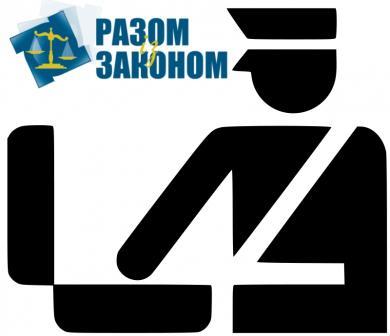The human rights NGO “Together with the Law” specialists developed a special Ukrainian Custom Regulations Guide for tourists and students. You can follow the link to find Part 1. This time we’ll raise the matter of custom clearance of commodities, cargos and means of transport while bringing them through Ukrainian customs border.
The list of documents required is quite simple and evident, and the custom clearance can be done at any Ukrainian custom station (not only at the place of accrediting), and one would think all this should ease customs formalities for the importers and optimise the articles delivery process.
The custom clearance, however, still remains one of the most time-consuming stages of importing operation. As a result, foreign-economic affair subjects spend more time and efforts for the clearance than they do for both searching the producer and developing and signing the contract.
Declaring commodities includes bringing the documents, namely bills of lading and authorization documents, customs declarations and customs clearance charge to the custom authority. Those are necessary conditions for crossing the customs border or tariff alteration.
The “Custom clearance” term is mostly used for importing articles. There’s nothing difficult in the procedure itself, nevertheless, it demands certain qualification of the receiving company staff and the broker.
The following documents are required:
— accreditation card;
— script invoices;
— certificate of origin;
— contract with specification;
— shipment documents;
— certificate on declaring currency values;
— approval documents (for example, ISO certificate, Hygiene Certificate, health bill, Public Health Service record, certification of consistency, etc.);
— export declaration copy;
— price-lists, catalogues, specification, previous conclusion on value and tariff codes, etc.;
— contract for package recycling.
Nature of cargo affects on the list above, so the Custom Service of Ukraine can demand providing additional documents in-situ.
Paperwork, too, needs attention and knowledge, as weight, titles, number of units and packings, dates and accuracy in titles of seller and buyer go through a scrupulous check. All these details are important and can influence how much time it takes to leave the port and the execution itself, and the knowledge of things one should emphasize helps preventing aftergrowth.
It is advisable to provide the copies of the export declaration, catalogues, letters containing the product output cost determinatio, certificate by the State Information Analysis Center For Monitoring External Commodity Markets,certificate of origin and sample copies for defending the seller’s invoice and warrant for assessment of charges. It’s better to attest the invoice itself within the Chamber of Commerce and Industry in the seller’s country.
However, it’s not for granted that the the execution will be fast and there will be no additional questions and demands, and no additional cost in terms of additional tax bills or other expenses in terms of the vehicle lost time,supervisions and weighting.
Please note that the custom offices check the prices with the recommended prices and tax burden for certain articles (Letter by Ukrainian State Custom Service under the date of 10.10.2012 № 15.1/1516-ЕП). Recommendation tables change, and there is a high probability that custom payments are often revised
For that reason, if you are planning to launch an importing project, it’s better to get a consultation for it’s code (defined according to the Foreign Economic Activities product combination) in advance, and check what approvals you might need and the terms of receiving them, learn more about the peculiarities of execution for concrete goods and weigh up the risks, as all these influence the total cost of the goods in Ukraine.
However, you can rely on a trusted broker.
There are special programs for custom clearance pricing calculation, this one, for instance, is for cars. The calculation is done based upon the data on duty rates, VAT and excise levy provided by the user.

















